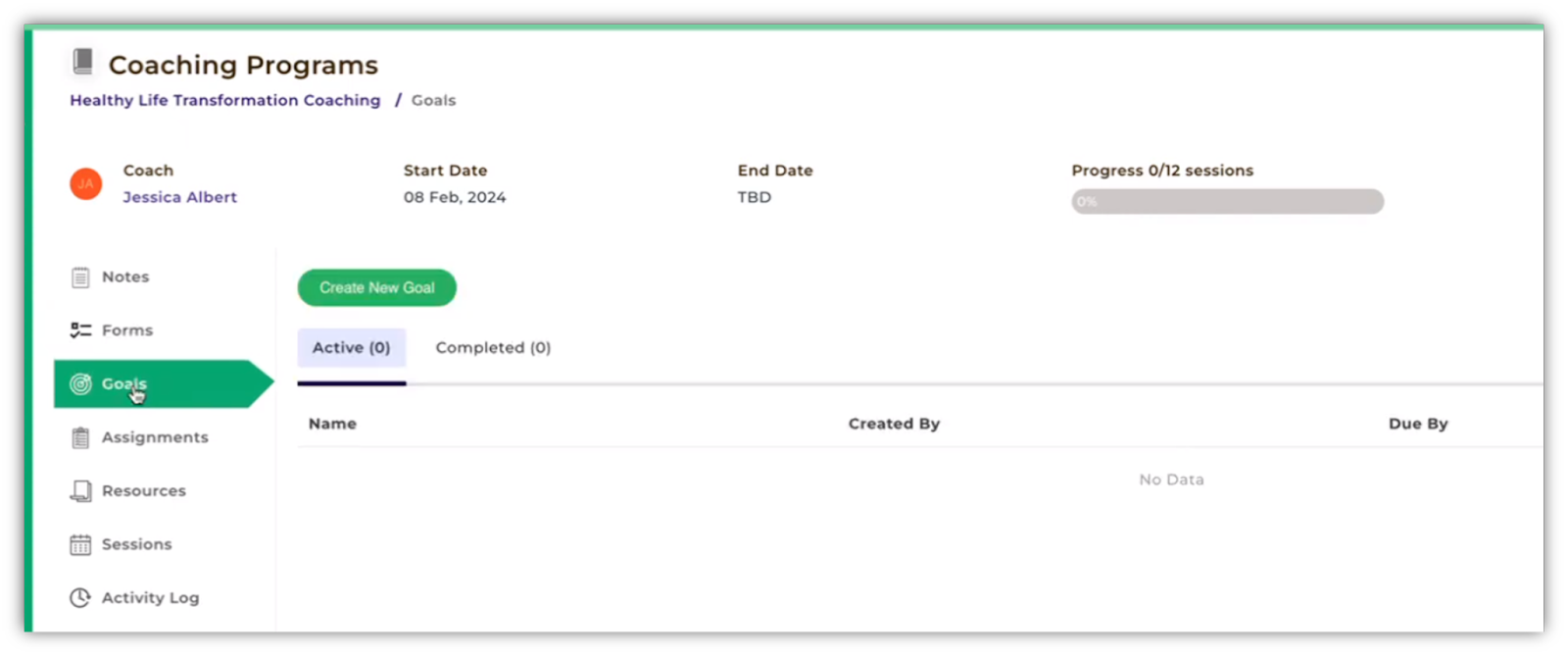April 10, 2024 - Coaching Business
What is a mental health & wellness coach?
Not sure what a mental health coach is and how they differ from therapists? Read more to find out what a mental wellness coach does now.

What Is a Mental Health and Wellness Coach?
In my experience providing coaching software to mental health professionals, I've gained insights into the crucial role of mental health and wellness coaches. This article delves into what the best coaches do, highlighting their unique position in bridging traditional mental health therapy and overall well-being.

We'll explore their methodologies, how they differ from therapists, and the significant benefits they bring. Whether you're considering a mental health coach's guidance or curious about this growing field, this overview offers a glimpse into the impactful world of mental health and wellness coaching.
What does a mental health coach do?
In my interactions with mental health coaches, I've witnessed their skill in deeply understanding each client's unique challenges, from stress management to overall emotional well-being. They listen and interpret beyond words, crafting personalized strategies that blend techniques like cognitive behavioral therapy (CBT) and dialectical behavior therapy (DBT) to resonate with individual needs and goals.
These coaches excel in fostering self-awareness and personal growth, guiding clients to recognize patterns that impact their mental wellness. They empower clients with practical tools and skills, such as stress-reduction techniques and resilience-building strategies, enabling them to confidently manage their mental health journey and achieve meaningful change in their lives.
Mental health coach vs therapist - What are the differences?
Scope of Practice
One of the most significant differences lies in their scope of practice. Therapists are licensed professionals who diagnose and treat mental illnesses. They delve into the past experiences of their clients to uncover and heal deep-seated psychological issues. In contrast, mental health coaches focus more on the present and future.
They do not diagnose or treat mental illnesses but instead, help clients set and achieve personal growth and wellness goals. Coaches work on developing strategies for better managing life's challenges, enhancing overall well-being.
Credentials and Training
Therapists are required to have specific academic qualifications, including advanced degrees in psychology or related fields, and must be licensed to practice. Mental health coaches, while they do undergo training and certification, do not require such extensive academic qualifications. Their training is more focused on coaching techniques and personal development strategies.
Relationship Dynamics
The relationship dynamics also differ significantly. In therapy, the relationship is more clinical, with the therapist often holding more authority in the client's journey to recovery. Mental health coaching, however, is more collaborative. Coaches work as partners with their clients, encouraging a two-way dialogue and a more equal power dynamic. This partnership aims to empower clients, helping them to unlock their potential and take charge of their mental wellness journey.
The Process of Mental Health Coaching
Approach and Methodologies
-
Initial Assessment and Goal Setting

Mental health coaches can use CoachVantage’s goal track to easily set up and track progress of goals.
The process begins with an initial assessment where the coach evaluates the client's mental health status and listens to their concerns. Together, they set achievable goals tailored to the client's needs, ranging from stress management to emotional well-being improvement.
Coaching software like CoachVantage come with client portals that enable mental health coaches to set goals and track their progress.
-
Developing a Customized Plan
Following goal setting, a customized plan is developed. This flexible roadmap is tailored to the client's unique needs, incorporating various techniques like cognitive-behavioral approaches or mindfulness practices, adaptable as the client progresses.
-
Regular Coaching Sessions
Regular sessions form the core of the coaching journey. These are interactive dialogues for learning and reflection, where the coach offers support and feedback, helping the client stay on track with their goals.
Manage Your Coaching Practice in One Place
CoachVantage automates your business workflows so you can focus on impactful coaching results.
-
Monitoring Progress and Making Adjustments
Progress is regularly monitored, with successes celebrated and plans adjusted as needed. This ensures the coaching remains relevant and effective, aligning with the client's evolving goals.
-
Conclusion and Future Planning
The process often culminates in a review session where achievements are acknowledged, and future strategies are discussed. This phase focuses on maintaining progress and setting new goals for continued personal development.
Benefits of mental health coaching
Enhanced Self-Awareness and Personal Growth
One of the most profound benefits I've seen in mental health coaching is the enhancement of self-awareness. Coaches guide their clients to understand their thought patterns, emotional responses, and behaviors in a way that fosters deep personal growth. This heightened self-awareness is often the first step towards meaningful change, empowering individuals to take control of their mental health journey.
Development of Practical Coping Strategies
Mental health coaches excel in equipping clients with practical, actionable coping strategies. These techniques range from stress management to dealing with anxiety and improving overall emotional regulation. The skills learned are not just theoretical but are tailored for real-life application, making a significant difference in how individuals handle daily challenges.
Improved Stress Management and Resilience
Another key benefit I've noticed is improved stress management and resilience. Coaches work with clients to develop techniques that help them navigate stressful situations more effectively. This not only aids in immediate stress reduction but also builds long-term resilience, equipping clients to handle future challenges with greater ease.
Goal Setting and Achievement
Mental health coaching also focuses heavily on goal setting and achievement. Coaches assist clients in identifying their goals, whether they're related to mental health, personal aspirations, or professional objectives. They then support clients in creating actionable plans to achieve these goals, providing motivation and accountability along the way.
Supportive and Non-Judgmental Environment
From my interactions with mental health coaches, I've seen the importance of the supportive and non-judgmental environment they create. This safe space allows clients to explore their issues openly, without fear of judgment, which is crucial for effective mental health improvement.
Empowerment and Increased Confidence

Finally, empowerment and increased confidence are standout benefits. Coaches empower their clients to take charge of their mental health, leading to a noticeable boost in confidence. This empowerment extends beyond the coaching sessions, influencing various aspects of the clients' lives, from personal relationships to professional endeavors.
How to choose the right mental health coach?
Mental health coaching stands as a transformative force in today's world. As someone involved in providing tools for these professionals, I've witnessed the remarkable impact a mental wellness coach can have.
It's crucial to select a coach with relevant experience and expertise, particularly someone who understands and can relate to your unique situation. Additionally, verifying their credentials and reviewing testimonials from past clients can offer insights into their effectiveness and approach.
Understanding a coach's methodology is also key. During initial interactions, remember to inquire about their techniques and how they tailor their strategies to individual clients. Be mindful of red flags such as unethical practices or manipulation tactics, like coaches who promise quick fixes or use high-pressure sales tactics.
Ethical coaches should respect your autonomy and empower you instead of pushing you into uncomfortable decisions. Ultimately, the right coach should be someone who empowers you to take control of your mental health journey in a supportive and professional environment.
They are not just guides but catalysts for profound personal growth, leading individuals to a balanced and fulfilling life. The role of a mental wellness coach is invaluable, offering pathways to empowerment and a deeper understanding of mental well-being.
Of course, mental health coaches cannot do this alone, and often require an all-in-one coaching platform to support multiple aspects of their business.
CoachVantage aims to streamline a mental health coach's work and improve client interaction, all under one roof. By managing scheduling, contracts, payments, and secure client communication, CoachVantage allows coaches to focus on delivering impactful sessions. This can lead to increased productivity, better organization, and ultimately, more time dedicated to transforming the lives of their clients.
If you’re keen on finding out how CoachVantage can support your coaching business, sign up for a 14-day free trial today!

Glen Oliveiro
Founder of CoachVantage
With a pulse on the coaching industry, Glen personally engaged with hundreds of coaches to develop a platform that addresses their day-to-day challenges. A visionary entrepreneur, Glen is committed to revolutionizing coaching practices through the innovative solutions offered by CoachVantage.
https://www.coachvantage.comYou might also like...
.png)
Top Social Media Marketing Tips for Coaches that Work in 2025
.png)
Top 7 Health and Wellness Coaches That Can Aid You On Your Fitness Journey
